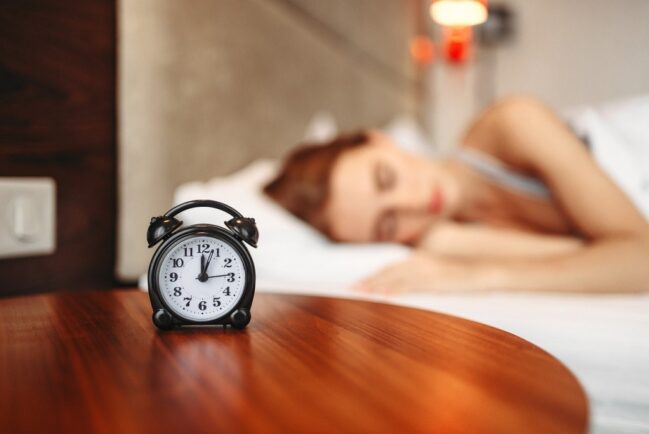Blog
Tips on how to fix your sleeping pattern
November 6, 2020
3 minutes, 35 seconds

Getting enough sleep is integral to your general health and wellbeing. A disturbed nights’ sleep can have a huge impact on our mood, energy levels, and ability to function.
A healthy sleep pattern is crucial when it comes to regulating your sleep and ensuring that your body and mind get enough rest.
Sleep patterns vary from person to person, depending on your lifestyle, job and family life. If you’re pulling all-nighters, having to adapt to different time zones whilst travelling, or working difficult shift patterns, you may struggle to get your sleep pattern on track.
It’s also not uncommon to experience disturbed sleep patterns due to anxiety. And, let’s face it, with the world being far from normal at the moment, it’s easy to see why so many people’s sleeping patterns are less than perfect.
But there are a number of ways to help fix your sleeping pattern and get your sleep back to normal.
What is a healthy sleeping pattern?
On average, adults should aim to get between seven and nine hours of sleep each night. To regulate your body clock, you should also try to go to sleep and wake up at approximately the same time each night. A consistent sleep pattern will do wonders for your health, wellbeing, energy levels and mood.
Why our sleep schedule goes off track
A number of different factors can cause your sleep schedule to deteriorate, especially while we all continue to adapt to the “new normal” following Covid-19 restrictions and guidelines.
For many of us, life has changed significantly. Alterations to our daily routines such as shifted mealtimes, the amount of time we spend outdoors, commutes to work and quarantine rules can have a huge impact on our sleeping patterns.
Sudden changes to our daily routines can have a significant impact on our natural circadian rhythm. This is the internal clock that plays a crucial role in regulating our sleep pattern, whilst controlling our body temperature and hormones. So, whether you’ve been furloughed, you’re about to return to work or you’re experiencing increased anxiety levels, it’s not surprising if your body clock is all out of sync.
Our tips on how to fix your sleeping pattern
Don’t be tempted to take a nap!
No matter how tempting it might be to curl up in a ball and have an impromptu snooze during the day, try to resist. Napping can wreak havoc with your sleeping pattern and can prevent you from falling asleep at your set bedtime.
Adjust your bedtime
Adjusting your bedtime routine isn’t going to happen overnight. It takes time to regulate your body clock in a way that works for your daily routine, so don’t be disheartened if your sleep pattern doesn’t improve straight away.
To adjust your sleep pattern, you should start by scaling back your bedtime until you reach an hour that works for you. Sleep experts recommend adjusting your bedtime by no more than 15 minutes, every two to three days.
Try not to eat or exercise too close to your bedtime
Exercise is proven to wake us up and set us up for the day, so it should be avoided before bed. Concentrate on winding down instead. You should also avoid eating too late in the day as going to bed on a full stomach can cause you to have a night of disturbed sleep, heartburn and a generally uncomfortable night’s rest.
Avoid exposure to light
Exposure to light can alter your body clock, especially during the summer months when the days are longer and lighter. With this in mind, you should avoid bright and outdoor light close to bedtime and ensure that light is not able to filter into your bedroom.
Of course, this includes limiting screen time before bed. The blue-white light from TV screens, laptops and mobile phones is known to stimulate the mind.
Finally, be strict about your bedtime routine, try and keep it as consistent as possible. It can also help to keep your bedroom a relaxing, tidy and inviting space.
If you’re one of the many who regularly struggle to sleep through the night, a sleeping app could help. Here, we list some of the best sleep apps available on both iPhone and Android.